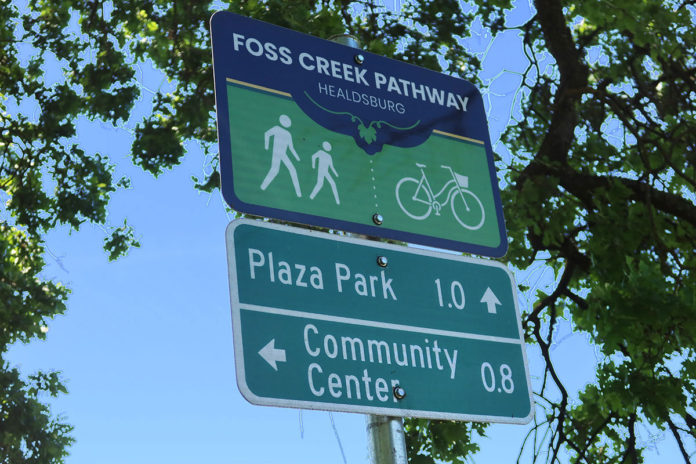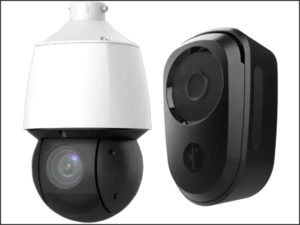
The Healdsburg City Council got back to work Monday evening, racing efficiently through an agenda of proclamations, pro forma approvals and a longer review of two separate issues, on law enforcement and politics.
The law enforcement issue was a request by Healdsburg Police to install 15 video surveillance cameras, in 10 locations including parks, intersections and the Foss Creek Pathway, in an effort to prevent and solve criminal activity or misbehavior.
But first, proclamations were read that recognized to two former Olympic-level athletes who live in Healdsburg. Gail Roper was on the U.S. Olympics swim team in 1952. Inducted into the International Swimming Hall of Fame in 1997, her lengthy career included 18 years as a local regular at the “short course” 25-meter pool at Healdsburg High.
In a separate proclamation, Hanna Scramaglia was honored. She competed with Sweden in the 1996 Olympics in Atlanta, and at UC Berkeley she was a three-time All American. She and her family have lived in Healdsburg for 20 years, and she too was celebrated “as an inspiration to all who value dedication, excellence, and sportsmanship.”

The pair rose to the front of the room to pose for friends and family, Roper dapper in her red cap and Scramaglia still in racing shape, and a multitude of cell phones snapped photos. “It is pretty exciting,” Mayor David Hagele said. “It’s such an honor to be able to celebrate our hometown Olympians here in Healdsburg.”
Public Safety Cameras

Another allocation from the city budget drew closer scrutiny at this meeting, that of the Police Department’s request for an in-city network of surveillance cameras. The request for $102,250 over a two-year term would pay for a Public Safety Camera System at certain intersections, in city parks and along the Foss Creek Pathway.
The department began researching the camera system idea some time back, and back in November of last year began building a draft proposal. The required “community engagement” was slight: A public meeting in March 2024, which although it was noticed in the paper and the city’s online calendar, attracted only two community members. The meeting was held deep in the bowels of the Police Department, however, and attendance may have been problematic for some.
Lt. Luis Rodriguez, of the Police Department, attended the council meeting to review the proposal. “Typically, a portable system would be set up in problematic areas focused on a singular crime issue in that area and in cooperation with an area resident or business owner,” he said through the staff’s report. “Staff has found that when cameras are visibly placed, there is a significant reduction in crime in that area.”
As technology improves and high-definition tilt-and-zoom cameras become more affordable, the possibility of an affordable city public camera system becomes more realistic.
The proposal is for 15 cameras at 10 locations in the city, including two at Giorgi Park and one each at Gibbs and West Plaza, the West Plaza parking lot, plus four key intersections in town. Additionally, four cameras are planned for Foss Creek Pathway, between West Grant to Grove Street.
Security Questions
The same company that will implement the Public Safety Camera System is Flock, the group that also runs the Police Department’s. The agreement would be with Flock Safety, the same company that manages the license-plate ID system throughout Sonoma County law enforcement, to which Healdsburg is a party.
Both the Flock vehicle ID program and the proposed Public Safety Camera System claim a privacy policy “that limits access to legitimate public safety purposes and seeks to balance the need for public safety with privacy concerns.”
The images the video cameras capture—no audio is recorded—are transmitted to monitors installed at the police department. The video can be used for things such as criminal investigations, monitoring activity around high-value or high-threat areas, and monitoring interactions between officers and offenders.
Access to the cameras and recordings are controlled by a check-in/check-out procedure, and only trained officers are “authorized to adjust the cameras to more effectively view a particular area for any legitimate public safety purpose … Unauthorized recording, viewing, reproduction, dissemination, or retention is prohibited,” according to the agreement with Flock.
With the cost of the cameras, their installation, infrastructure, programming and other costs, the total amount requested for a two-year period was $102,250. The program was unanimously agreed to by the council, which will next meet Aug. 19.







